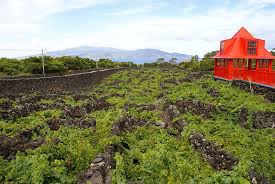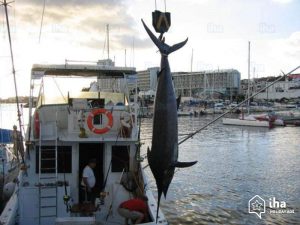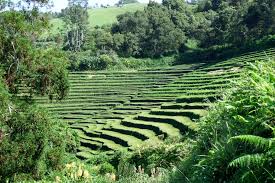Economy of the Azores
Although rapidly evolving, the economy of the Azores is still based today mainly on agriculture, livestock farming, fishing and more recently, tourism.

Agriculture
The favorable climatic conditions of the archipelago have made it possible to cultivate almost all the main products of the earth with the addition of particular “exotic” crops such as tobacco, tea, pineapples, bananas. Do not forget the production of wine which, in recent times, has found its niche market also in the export market. In addition to the production necessary for local sustenance, the products are mainly exported to Portugal and, naturally and in part, to Europe and the world.
Breeding
The same goes for the breeding of cattle, sheep, goats and pigs which, in addition to meat production, have characterized the area as an excellence for the production of milk and dairy products. The production of Azores dairy products and cheeses, together with agri-food products, are therefore one of the main local activities.
The two main activities, breeding and agriculture, are closely linked and functional to each other: the pasture fields are cyclically converted to crops by moving herds and flocks onto others: the result of this integrated and natural activity gives lands made naturally fertile and new fodder for cattle.
Fishing
Of course, fishing is also a prevalent and key activity for the area. The ocean full of many fish qualities continues to be a source of widespread activity. The whaling tradition of the islands, rightly interrupted by the international prohibitions of the early 1980s, has today been able to convert to the naturalistic observation of the large cetaceans with which the surrounding sea abounds, effectively giving rise to all the tertiary activity linked to eco-sustainable tourism.

Tourism
In fact, tourism in the last few years is becomings the new economic frontier of the archipelago, both in its direct management and in the collateral activities it generates and which create significant effects on the territory.
The natural wonders of the Azores islands, land of volcanoes, forests, ocean, natural pools of volcanic rock, plains and verdant hills, have become an incredible driving force for all related tourist activities: from hospitality to catering, from organizing tours between the various islands to trekking and bike tours, from diving to whalewatching, and birdwatching.
The Azores lost much of their economic-strategic importance in the mid-1900s with the advent of large transatlantic flights when they were no longer an indispensable port and the necessary node for telecommunications. Later, around 1980, another source of livelihood was lacking: fishing and exploitation of the whale, and it was on this activity that a large part of the local economy was based. In the early 1980s, whaling was was rightly forbidden and the islanders found themselves having to convert their work, they did it also thanks to the help received, managing to organize an activity that attracts tourists from all over the world which is the flagship of the archipelago: l whale watching.
They have thus managed to give a big boost to tourism which is continuously growing thanks to the choices and investments made in recent years. The islands focus a lot on eco-compatible tourism that attracts visitors in search of easily accessible and uncontaminated nature, very attentive to environmental conservation.
An economy in full development
Throughout the year, tourists come mostly from the countries of Northern Europe, in fact they come to winter here where they find mild climate and a longer duration of light. In summer they are joined by the Portuguese, the Spanish, the French, the Italians and also the Americans favored by the daily flights that link Boston to the Azores. Basically, the economy, as well as tourism, is based on the breeding and production of milk derivatives. There are more than 200,000 heads and there is a large export of meat and cheeses to mainland Portugal.

The agriculture, also important for breeding, is developing again after a period of stall due to subsidies to breeding and milk production which made many farmers switch between the two. There are also cultivations of tropical plants such as pineapple and tea and a production of wine that has recently found its niche position also in the export market. Food and drinks represent over 65% of the total exports of the Azores, the transformation of fishery products, such as tuna canning, has recently started to have a fair importance. The balance between export and import reached a positive trend in 2011.








